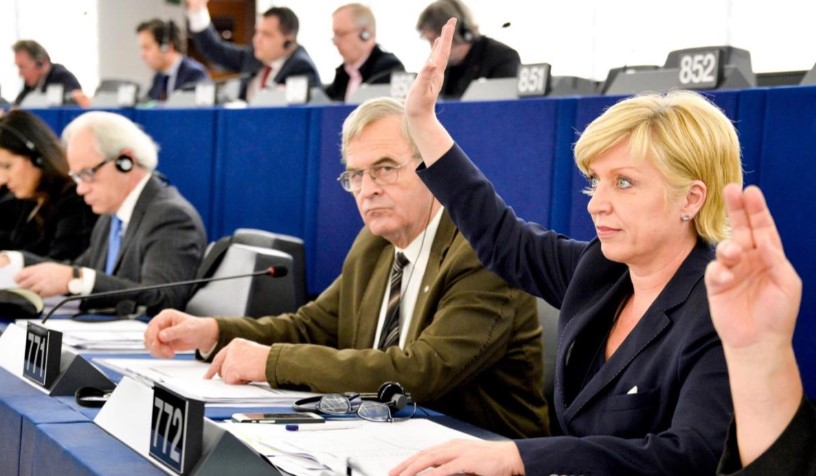On Wednesday, the President of the European Commission, Ursula von der Leyen, delivered her last State of the Union address in this mandate to the European Parliament. “The intensity with which the European Commission promoted President Ursula von der Leyen’s speech reinforced the expectation that she would say something new and crucial for our future in this year’s State of the Union address. However, this was not the case,” commented Slovenian MEP Romana Tomc.
We are on the verge of an economic cooling, with high inflation, the ongoing war in Ukraine, over-dependence on Chinese and other strategic raw materials, increasing pressure from illegal migration, an extremely unfavourable demographic picture, and under pressure from green promises whose side effects of reckless and over-ambitious targets are coming back like a boomerang. The farmers have practically become the enemy, and the rule of law and freedom of the media are being defended selectively. The Brussels bureaucracy has grown beyond all boundaries, officials are gaining more and more power, and there is a sense of weakness in the management of the Commission and of individual departments. In foreign policy, the European Union does not carry much weight, and we have been talking about enlargement for ten years or more, said MEP Romana Tomc.
She believes that the European Union is increasingly divided and that it cannot unite on important issues. The overemphasis on unity and performance is more indicative of what the European Commission President Ursula von der Leyen would like to see than of what is actually the case. A year before the end of the mandate, when the most effort should have been put into completing the work, three Commissioners, including two Vice-Presidents, left the Commission. Of course, the European Commission has also done a great deal of useful work, but we are more interested in orientations and future solutions than in a report on the work in relation to the state of the Union.
MEP Tomc said that citizens are primarily concerned about how they will live, whether they will have decent wages, access to a doctor, care in their old age – and whether they will be safe. President von der Leyen has not given answers to any of the key questions that would give confidence that the Commission has things under control. This is why this year’s speech was a considerable disappointment, which even an intensive promotional campaign and a well-thought-out appearance cannot cover up.
Romana Tomc wrote about the key questions for Europe’s future that remain unanswered:
1. What the next phase of the green transition will look like, when it is becoming increasingly clear that the European Commission’s ambitions and objectives in this area are unrealistic and that the collateral damage to the European economy and people will be huge.
2. How to secure the European Union’s sovereignty in the fields of energy, food and strategically important raw materials, which we have squandered with our policies to date and which have pushed Europe into dependence on the global market. Linked to this, how to strengthen the European economy and industry, which is sinking further and further into a recession.
3. How to stop illegal migration, when there are diametrically opposed views between countries. To let five years pass and demonstrate the inability to adopt an acceptable asylum policy in the face of the fact that the numbers of illegal arrivals in the EU are rising is a major fiasco.
4. How to stop the demographic extinction of the European Union and the brain drain within the European Union, which is causing ever greater disparities between countries, as well as empty, uninhabited areas.
5. And last but not least, how to change the elitist approach of European officials who are alienated from reality and who are often influenced by lobbyists from various organisations, in order to propose better and sustainable solutions that will strengthen the European Union, our values and our culture. While offering food made of worms and crickets, they are doing their utmost to destroy European farms.
Anita Gužvić


